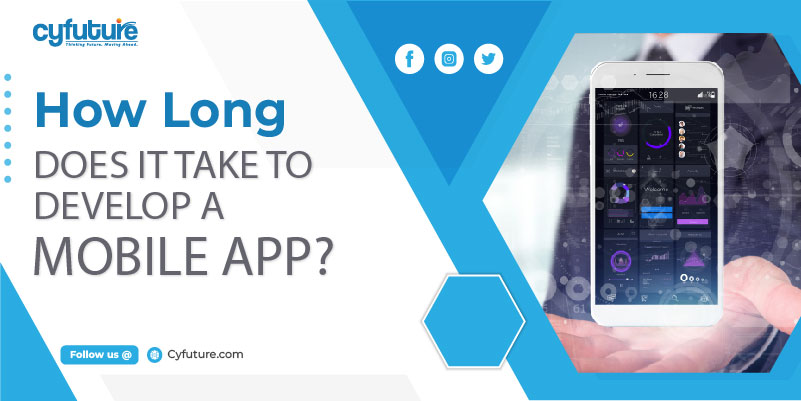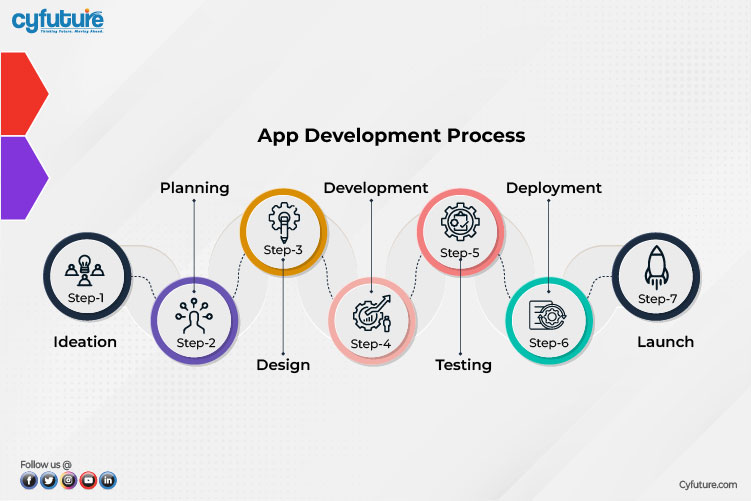-
Get Cloud GPU Server - Register Now!
Toggle navigation

Once you conceive an idea for a mobile app, a multitude of thoughts begin to occupy your mind, accompanied by a host of pressing questions. Among these inquiries, the second most commonly pondered question, following “How much will it cost?”, is “How long will it take to develop a mobile app?” This query naturally arises, particularly in the face of escalating competition, where a vast array of applications flood the app market on a daily basis. Many of our clients have struggled to grapple with this question, prompting us to provide guidance on how to estimate the timeframe involved in mobile app development services.
First and foremost, it is exceedingly challenging to accurately determine the precise duration until the initial release is ready to enter the market. Even if you possess a clear understanding of your app’s functionality and target audience, numerous other factors come into play that are beyond your control. Consequently, these factors can impact the duration required by an app development agency to create your app.
It is worth noting that the time frame for mobile app development hinges on several key aspects. These include the complexity of your app’s features, the intricacy of its design, the availability and expertise of the development team, and the platform(s) on which the app will be launched. Each of these elements significantly influences the overall development timeline.
Statistically speaking, according to industry data, the average time required to develop a mobile app from conception to launch ranges from three to nine months. However, this timeframe is subject to considerable variation depending on the aforementioned factors. For instance, a relatively straightforward app with basic features and a simple design could potentially be developed within the lower end of this range. Conversely, a highly intricate app with advanced functionality and a sophisticated user interface may necessitate a longer development period.
Furthermore, it is important to understand that mobile app development is an iterative process. It typically involves multiple stages, including conceptualization, wireframing, prototyping, coding, testing, and refinement. Each of these stages requires its own dedicated timeframe, and any modifications or adjustments during the development process can extend the overall duration.
Ultimately, to obtain a more accurate estimate of the time required for your specific mobile app project, it is advisable to consult with a reputable app development agency. They can assess your requirements, evaluate the complexity of the desired features, and provide a tailored timeline based on their expertise and experience.
When it comes to mobile app development services, estimating the time required for creating an app is influenced by various factors. The complexity of the app’s features, the intricacy of its design, the availability and expertise of the development team, and the platforms on which it will be launched all play a significant role. On average, the development process takes between three to nine months, although this can vary depending on the specific project requirements. Understanding these factors and seeking guidance from a professional app development agency is crucial in obtaining a more accurate estimation tailored to your app’s unique needs.

The development process for mobile apps heavily relies on the chosen platform, and our experience in mobile app development services has shown that both platforms require substantial time and effort. However, it is worth noting that Android development generally takes longer compared to iOS. This discrepancy can be attributed to the challenges posed by device fragmentation, as Android apps must cater to a wider range of devices. Although Google has made efforts to address this issue by updating and streamlining the Android Software Developers Kit (SDK) to accommodate varying screen sizes, OS versions, and pixel densities, further improvements are still needed to rival the efficiency of the iOS platform. Additionally, the app approval process tends to be quicker for Android compared to iOS.
Fortunately, our skilled team of iOS and Android app developers is well-versed in tackling these prevailing challenges and finding effective solutions.
The level of understanding that mobile app developers have regarding your idea significantly influences the time required for development in mobile app development services. For simple ideas, such as replicating an existing app or creating a wallpaper app, developers can quickly comprehend and execute the plan. However, when it comes to developing an app with new and unique features, investing more time in clarifying your idea is essential. This is because a clearer understanding leads to better output.
At Cyfuture, we prioritize understanding and thoroughly exploring the scope of your mobile app idea, putting our utmost efforts into ensuring its success.

The inclusion of specific features in your mobile application significantly impacts the time required for its complete development in mobile app development services. The more features you wish to incorporate, the more time-consuming the process becomes. Furthermore, the complexity of the desired features and functionalities also plays a crucial role. While some features may be relatively easy to implement, others may require more effort and time due to their intricate functionality.
The complexity of your app idea and the functionalities involved can pose risks. It is possible to invest a considerable amount of money into the development process without achieving the desired outcomes. To mitigate the risks of wasting time, effort, and resources, we advise our clients to consider building a Minimal Viable Product (MVP). An MVP is a product that incorporates essential and core features, allowing you to assess its market potential and gather valuable feedback for future product development. In the event that the initial version of the app falls short, you can improve your idea based on the feedback received. Conversely, if the app successfully achieves its goals, additional features can be added through subsequent releases. Although this approach is profitable, it does require additional time for iterative development and enhancement.
When it comes to mobile app development services, the number of users an app targets significantly impacts the complexity of the development process. Developing an app for a small user base of, let’s say, 1,000 users involves fewer considerations compared to an app targeting a larger audience of 50,000 users. Our knowledge and experience indicate that applications catering to a wider audience require additional investments in architecture, infrastructure, and performance testing and tuning. These factors contribute to the overall time required for app development.
At our company, we prioritize delivering a bug-free and fully-functional app over rushing its launch into the market. We understand that a crashing app can be detrimental to its success. Therefore, we invest ample time in thorough testing to ensure the app meets all crucial Key Performance Indicators (KPIs) and performs seamlessly across various devices and user scenarios. By prioritizing quality and performance, we strive to deliver exceptional mobile app experiences for our clients and their target audiences.

The chosen development process plays a significant role in determining the time required for mobile app development services. A well-defined process ensures that all stages, from planning to design, development, and testing, are executed on schedule. Conversely, an inappropriate process can disrupt the entire workflow.
At Cyfuture, we adhere to the Agile methodology, which facilitates the emergence of requirements and solutions through collaborative efforts between the development team and the user. This approach emphasizes adaptive planning, evolutionary development, early delivery, and continuous improvements. The Agile methodology is particularly beneficial for complex projects where customer needs frequently evolve.
Additionally, we prioritize the parallel development of different modules instead of handling them sequentially. This approach enables us to achieve multiple outputs within a shorter timeframe. By efficiently managing parallel development, we can optimize time utilization and streamline the overall app development process.
Maintaining constant communication between the client and the mobile application development agency is crucial for achieving optimal results. When there is a significant time gap or other communication barriers between the client and the development team, challenges that arise during the development phase may take longer to address. These delays can inevitably prolong the app development timeline.
At our company, our team of mobility experts understands the importance of effective communication and is committed to going the extra mile to ensure seamless collaboration. We prioritize staying in constant touch with our clients, promptly addressing any queries or concerns, and actively involving them throughout the development process. By fostering strong communication channels, we aim to expedite the development process and deliver high-quality mobile apps efficiently.
The factors discussed above illustrate that creating a high-end mobile app is a complex undertaking that requires substantial time, effort, investment, and strategic planning in mobile app development services. Building an app that stands out in the competitive app market necessitates meticulous attention to detail and a thorough development process. We understand that you may have additional questions or concerns regarding app development, and we encourage you to reach out to us. Our team is readily available to provide further information and assist you in bringing your app idea to fruition.